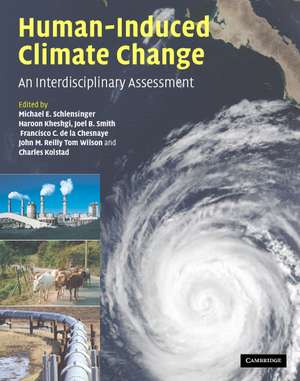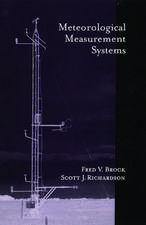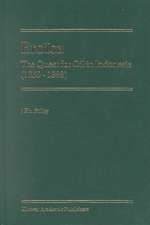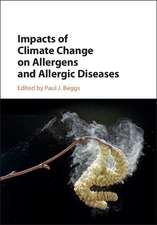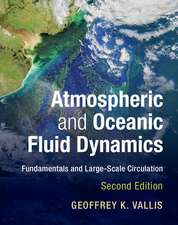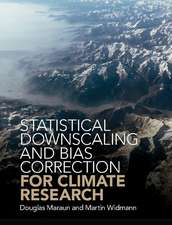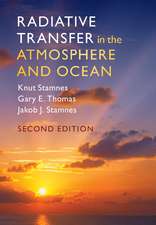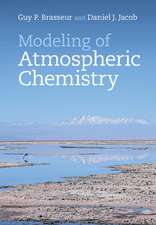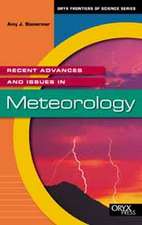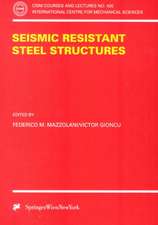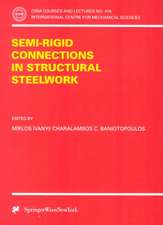Human-Induced Climate Change: An Interdisciplinary Assessment
Editat de Michael E. Schlesinger, Haroon S. Kheshgi, Joel Smith, Francisco C. de la Chesnaye, John M. Reilly, Tom Wilson, Charles Kolstaden Limba Engleză Hardback – 10 oct 2007
Preț: 857.43 lei
Preț vechi: 997.02 lei
-14% Nou
Puncte Express: 1286
Preț estimativ în valută:
164.09€ • 170.68$ • 135.47£
164.09€ • 170.68$ • 135.47£
Carte tipărită la comandă
Livrare economică 14-28 aprilie
Preluare comenzi: 021 569.72.76
Specificații
ISBN-13: 9780521866033
ISBN-10: 0521866030
Pagini: 451
Ilustrații: 172 b/w illus. 16 colour illus.
Dimensiuni: 225 x 283 x 26 mm
Greutate: 1.5 kg
Editura: Cambridge University Press
Colecția Cambridge University Press
Locul publicării:New York, United States
ISBN-10: 0521866030
Pagini: 451
Ilustrații: 172 b/w illus. 16 colour illus.
Dimensiuni: 225 x 283 x 26 mm
Greutate: 1.5 kg
Editura: Cambridge University Press
Colecția Cambridge University Press
Locul publicării:New York, United States
Cuprins
Dedication; Foreword; Part I. Climate System Science: Preface; 1. The concept of climate sensitivity: history and development; 2. Effect of black carbon on mid-troposphere and surface temperature trends; 3. Evaluating the impacts of carbonaceous aerosols on clouds and climate; 4. Probabilistic estimates of climate change: methods, assumptions and examples; 5. The potential response of historical terrestrial carbon storage to changes in land use, atmospheric CO2 and climate; 6. The albedo climate impacts of biomass and carbon plantations compared to the CO2 impact; 7. Overshoot pathways to CO2 stabilisation in a multi-gas context; 8. Effects of air pollution control on climate results from an integrated global system model; Part II. Impacts and Adaptation: Preface; 9. Dynamic forecasts of the sectoral impacts of global warming; 10. Assessing impacts and responses to global-mean sea-level rise; 11. Developments in health models for integrated assessments; 12. The impact of climate change on tourism and recreation; 13. Using adaptive capacity to gain access to the decision-intensive ministries; 14. The impact of climate change on Africa; Part III. Mitigation: Preface; 15. Representing energy efficiency in bottom-up models; 16. Technology in an integrated assessment model: the potential regional deployment of carbon capture and storage in the context of global CO2 stabilisation; 17. Moving toward a hydrogen economy: light duty vehicles; 18. The role of expectations in modelling costs of climate change policies; 19. A global perspective on terrestrial carbon sequestration; 20. Terrestrial mitigation of GHGs, US perspective Bruce A.; 21. Global agricultural land use data for integrated assessment modelling; 22. Past, present and future of non-CO2 analysis; 23. How (and why) do climate policy costs differ among countries?; 24. Lessons for mitigation from the foundations of monetary policy in the United States; Part IV. Policy Design and Decision Making Under Uncertainty: Preface; 25. Climate policy design under uncertainty .; 26. Climate policy assessment using the Asia-Pacific integrated model; 27. Price, quantity and technology strategies for climate change policy; 28. Uncertain climate thresholds and the economic value of information; 29. Prudent policy or boiling frogs: can standard two-period decision models give false justification for waiting for action?; 30. Long-term climate stabilisation: methods and models for decision-making under uncertainty; 31. Whither integrated assessment? Reflections from the leading edge; 32. Moving beyond concentrations: the challenge of limiting temperature change; 33. International climate policy: approaches to policies and measures and international coordination and cooperation; Index.
Recenzii
'It allows ideas to be tried and new thoughts floated as we start to tackle the issue of global warming. A useful reference for the university library.' Ecological and Environmental Education
Descriere
Survey of climate change science for graduate students, researchers and policymakers interested in climate change.
